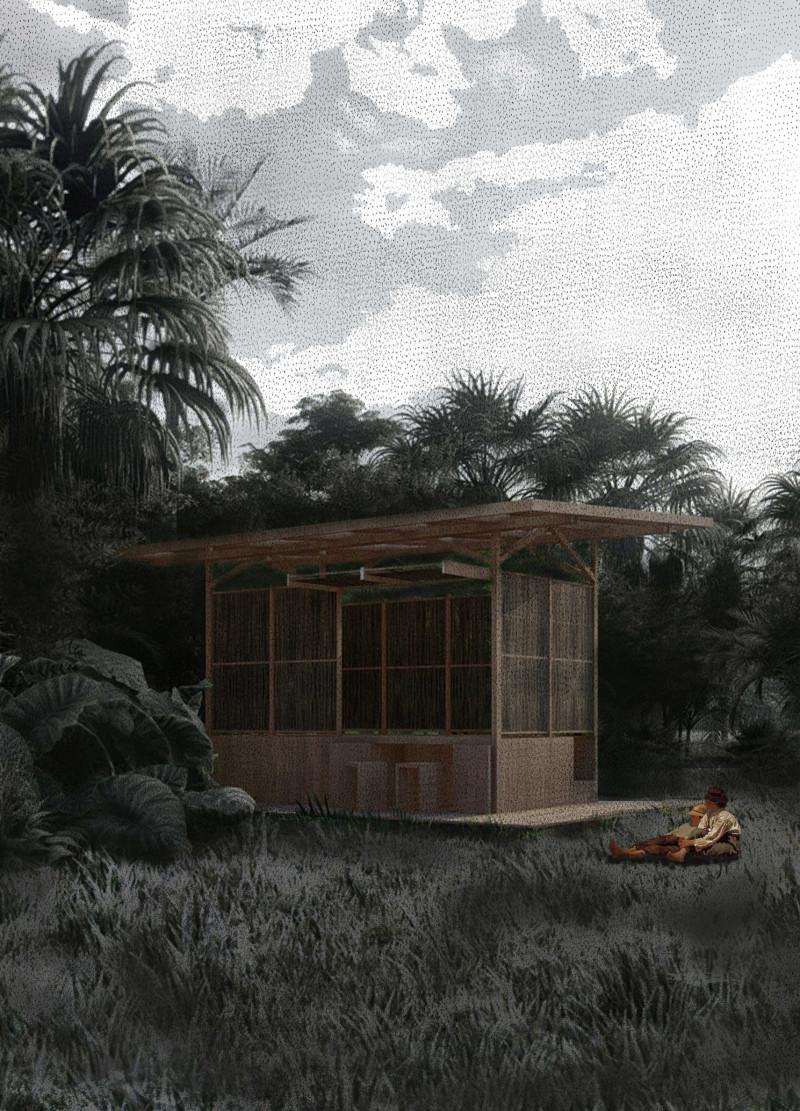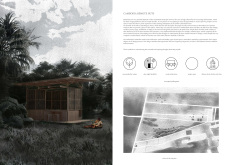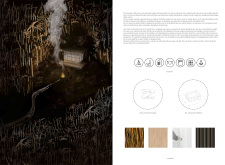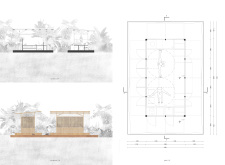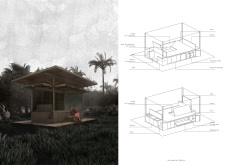5 key facts about this project
The Cambodia Remote Huts project is located in the Cambodian rainforest, designed as a retreat that promotes a connection between visitors and nature. The project emphasizes simplicity and minimalism, focusing on essential functions that allow for a tranquil experience. By creating these huts, the goal is to offer a space where people can relax, meditate, and engage with the natural surroundings.
Design Concept
The layout of the huts features a two-level organization that separates everyday activities from spaces meant for contemplation. This division supports various uses, such as yoga and quiet reflection, allowing individuals to immerse themselves in the peaceful environment. The idea of "empty space" is central to the design, encouraging clarity of thought and a sense of calm.
Structural Integrity
The design approach combines multiple functions into a compact form, making efficient use of space. Each hut operates like a Swiss army knife, incorporating concealed toilets, showers, and kitchens to maintain a tidy appearance. This thoughtful arrangement keeps the focus on the surrounding nature, providing a clean and relaxed atmosphere for users.
Material Considerations
Wood is the main material used for construction, aligning with local building traditions and enhancing the connection to the setting. The huts are elevated on a framework that adapts to different terrains, helping to address environmental factors like groundwater and wind. This design choice not only supports the structure but also reduces the impact on the forest ecosystem.
User Experience
The design outcome involves flexibility and adaptability, allowing visitors to personalize their stay according to their preferences and the environment. An inner core offers protection during the night, while translucent shading panels bring light into the huts during the day. This combination creates an open feel that enhances interaction with the outdoors and deepens the experience of being in nature. The overall result is a retreat that encourages serenity and reflection amidst the beauty of the Cambodian landscape.


